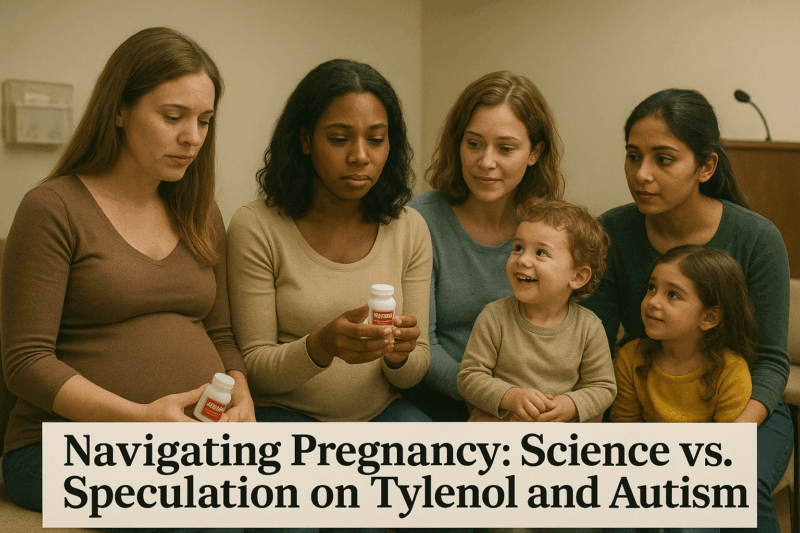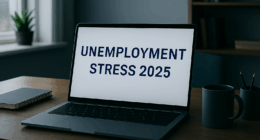A Mother’s Quiet Worry in the Face of Uncertainty
Imagine a young mother, hand resting on her swelling belly, staring at a bottle of Tylenol on her nightstand. It’s 2 a.m., a fever rages, and the pain from a simple headache threatens her rest—and her baby’s health. Now, President Trump’s reported announcement tying Tylenol use during pregnancy to autism risks amplifying that quiet anxiety into a national chorus of doubt. On Monday, in the Oval Office, Trump is expected to advise pregnant women to limit the pain reliever—known as paracetamol outside North America—only for high fevers, framing autism rates as “out of control.” But as families grapple with this headline-grabbing claim, experts are sounding a clear note of skepticism, urging reliance on science over speculation.
This moment isn’t just policy talk; it’s a deeply personal intersection of health, hope, and heartbreak for millions of expectant parents navigating the fragile early days of life.
Families Caught Between Pain and Parental Fears
For Sarah, a 32-year-old teacher from Ohio expecting her first child, the news hits like a gut punch. “I’ve taken Tylenol for every ache since finding out I’m pregnant—it’s what my doctor recommended,” she shares, voice trembling over a phone call. “Now, hearing Trump say it might cause autism? I’m terrified. What if I could have prevented it?” Stories like Sarah’s echo across support groups and social media, where parents of autistic children vent frustration, and soon-to-be moms second-guess every pill.
Autism touches lives profoundly, weaving joy and challenge into family fabrics. Diagnoses have surged, leaving caregivers to advocate fiercely amid stigma and resource shortages. Trump’s words, delivered at a memorial service Sunday, promise an “amazing” breakthrough. Yet, for those already raising autistic children, it reopens wounds—reviving debunked fears like vaccine links peddled by HHS leader Robert F. Kennedy Jr. The emotional weight? A mother’s feverish night now shadowed by “what ifs,” amplifying isolation in a society still learning to embrace neurodiversity.
What the Science Really Says on Tylenol and Autism
Let’s ground this in verified data. Autism spectrum disorder diagnoses among 8-year-olds hit 2.77% by 2020, per the U.S. Centers for Disease Control and Prevention (CDC)—a sharp rise since 2000, driven largely by heightened awareness and broader criteria, not a single culprit.
On Tylenol (acetaminophen): Some studies, like an August review led by Harvard’s Chan School of Public Health dean, suggest a possible association with autism and neurodevelopmental issues in children exposed prenatally. That analysis called for cautious use but stressed the drug’s role in managing maternal fever and pain, which untreated can harm fetuses too.
Yet, the evidence is inconsistent. A 2024 study found no link whatsoever. Major bodies, including the American College of Obstetrics and Gynecology, affirm Tylenol as the safest pain reliever for pregnancy, with “no clear evidence” of direct harm from prudent use across trimesters. Kenvue, Tylenol’s maker, echoes this: “Independent science shows acetaminophen does not cause autism,” warning that curbing it forces risky alternatives.
Kennedy’s April pledge for a “massive” autism cause probe in five months? Experts note autism’s complexity—genetics and environment intertwined—defies quick fixes after decades of research.
Echoes of Past Controversies and the Search for Truth
This isn’t isolated; it’s part of a pattern. Kennedy’s past vaccine-autism claims, long debunked, fuel distrust in public health. Autism’s rise invites scrutiny of environmental factors, but pinning it on one drug overlooks the multifaceted reality: genetic predispositions, prenatal exposures, and societal shifts in diagnosis.
Globally, governments and groups like the World Health Organization endorse acetaminophen’s safety in pregnancy. In the U.S., where 1 in 36 children is autistic (CDC’s latest), the conversation must balance innovation with caution—avoiding fear-mongering that erodes trust in proven care.
For deeper dives, check our related post on vaccine myths and child health or external reporting from Reuters on autism research.
Building Resilience and Demanding Better Support
As the dust settles on Trump’s announcement, resilience shines through. Advocacy groups like Autism Speaks push for comprehensive research funding, not hasty blame. Expectant mothers deserve expanded pain relief options—perhaps non-drug therapies or safer alternatives—without the terror of unfounded links.
Governance plays a role: HHS must prioritize evidence-based policy, learning from history to foster transparency. Globally, this could spur collaborative studies, turning skepticism into solidarity. For families, it’s about community: peer support networks, inclusive education, and celebrating autistic strengths.
Holding Space for Hope Amid the Tylenol-Autism Debate
In the end, as another mother reaches for Tylenol to ease her fever, we hold space for her hope—and for the autistic children whose worlds deserve celebration, not causation hunts. Trump’s Tylenol-autism link sparks vital dialogue, but let it be guided by compassion and facts, not fear. For Sarah and countless others, the real “amazing” announcement? A future where science illuminates paths to health, not shadows of doubt. Stay informed, stay supported—because every family’s story matters.





